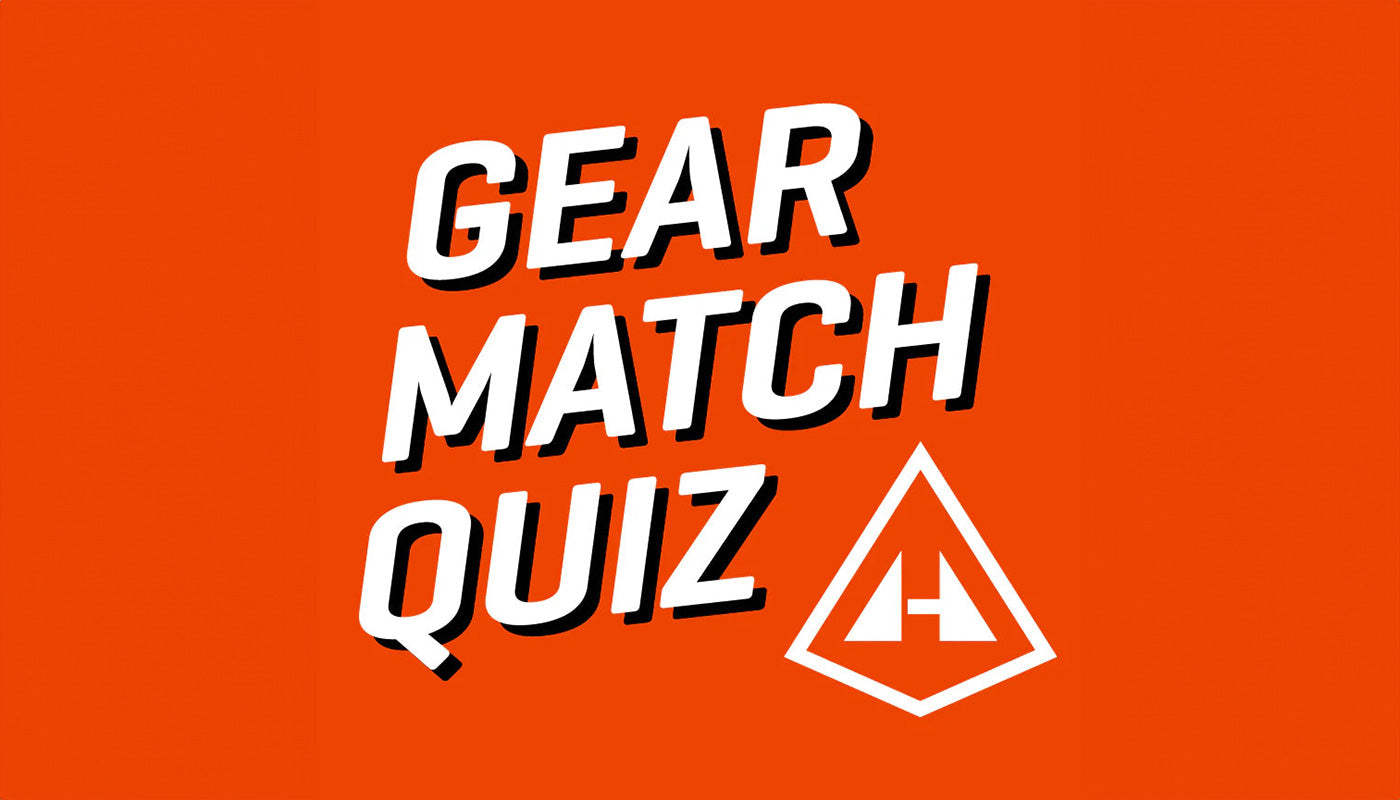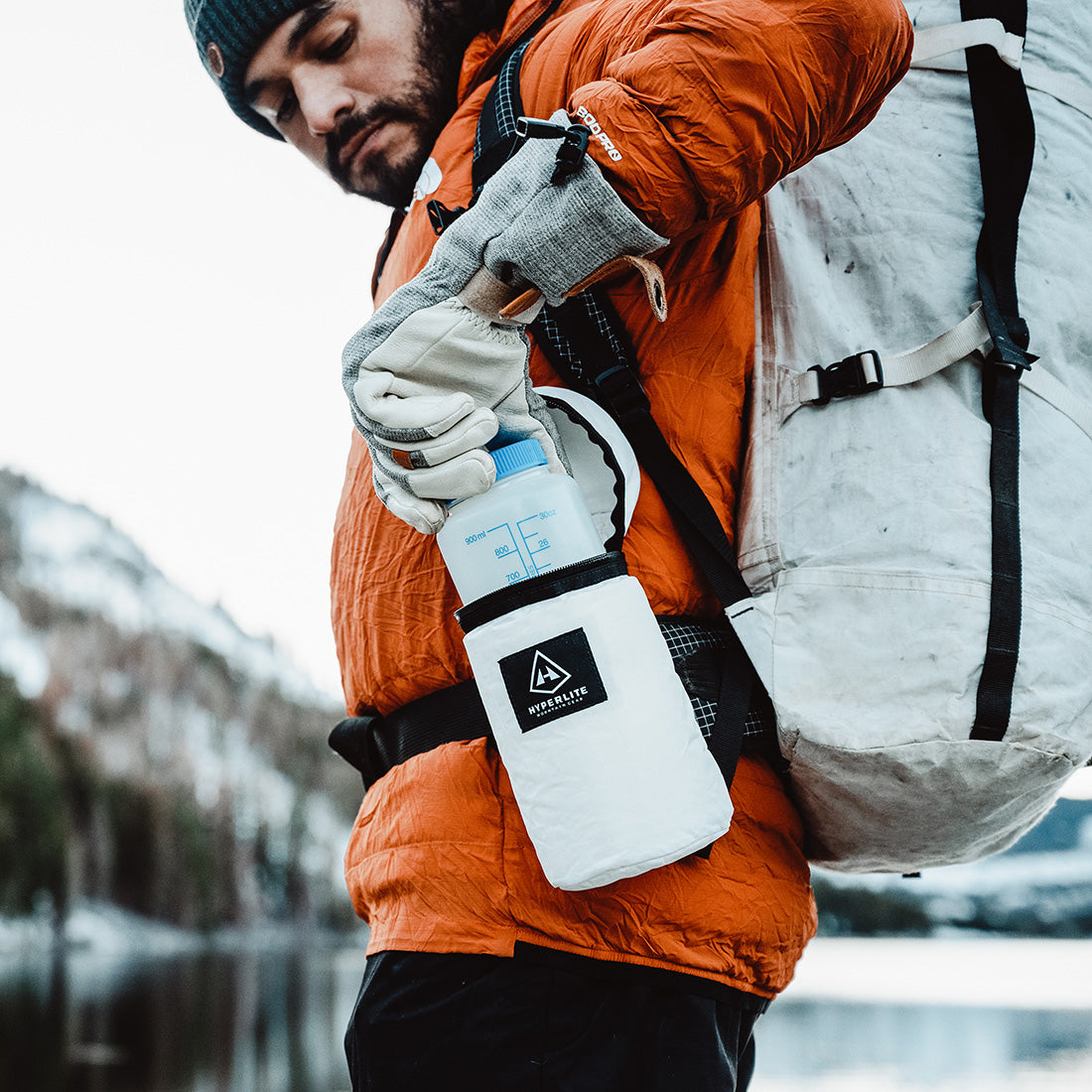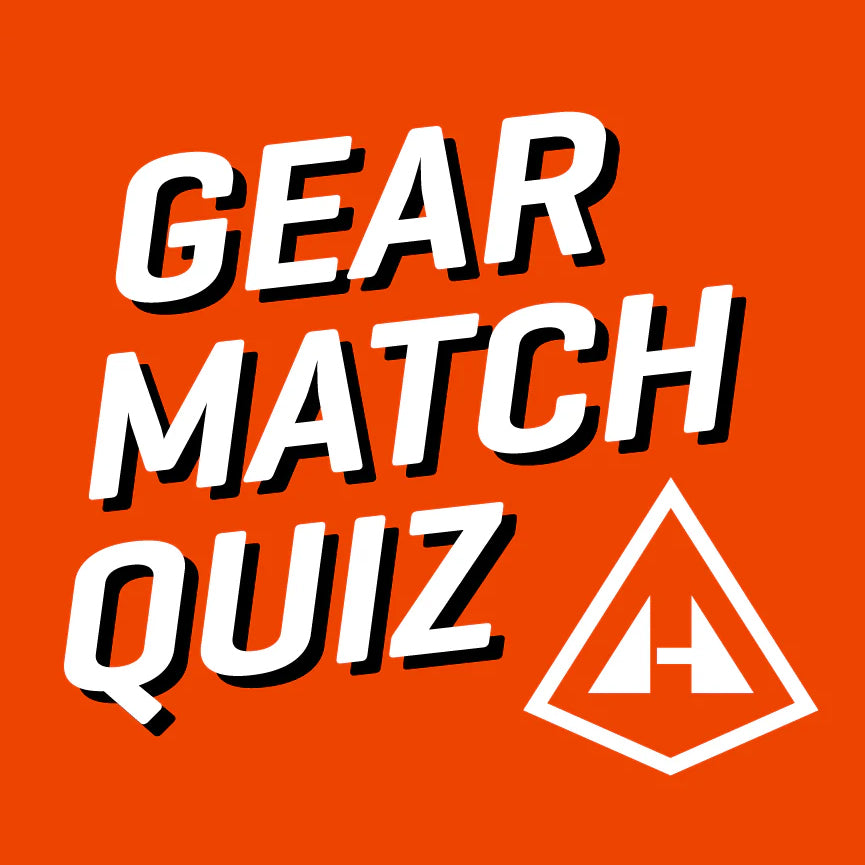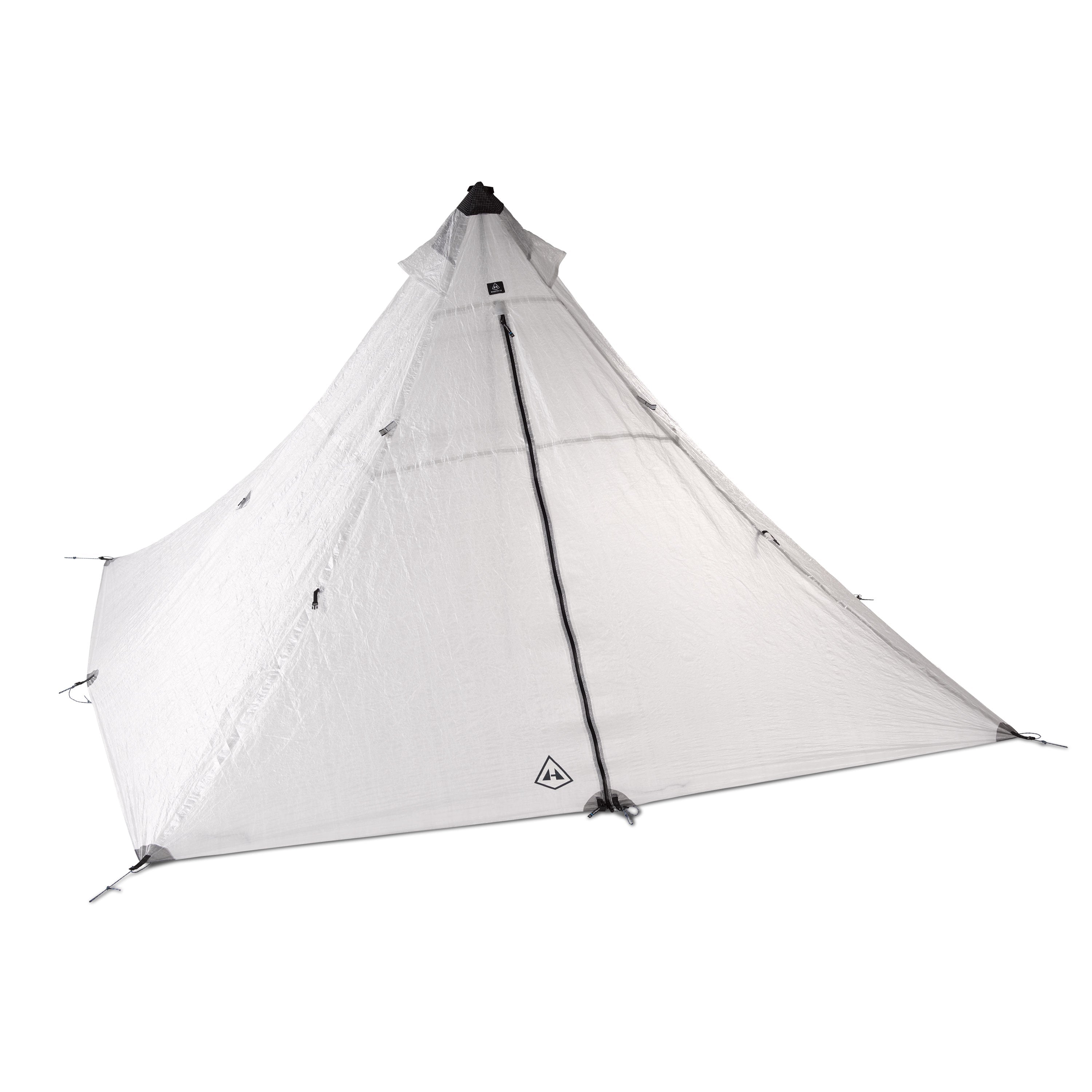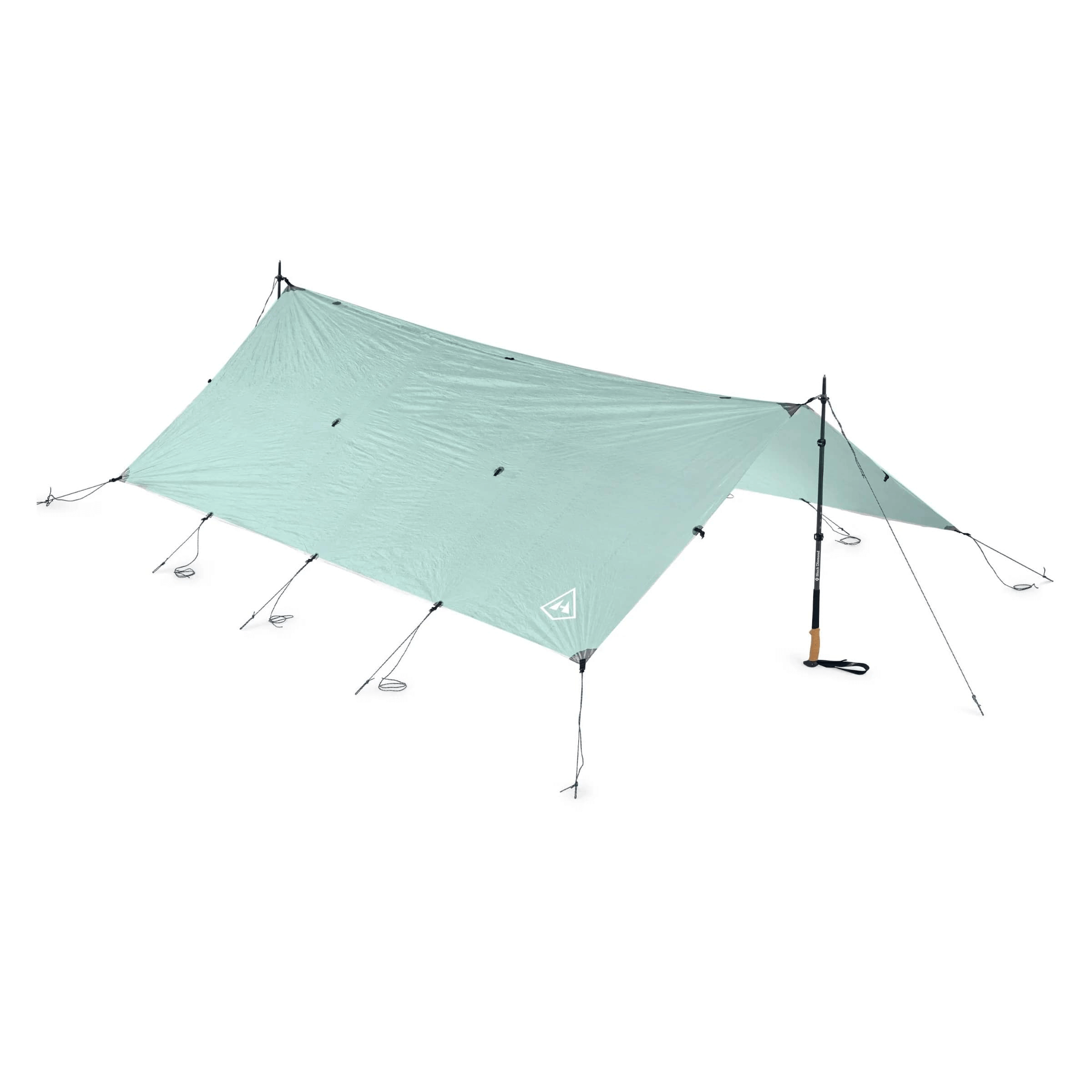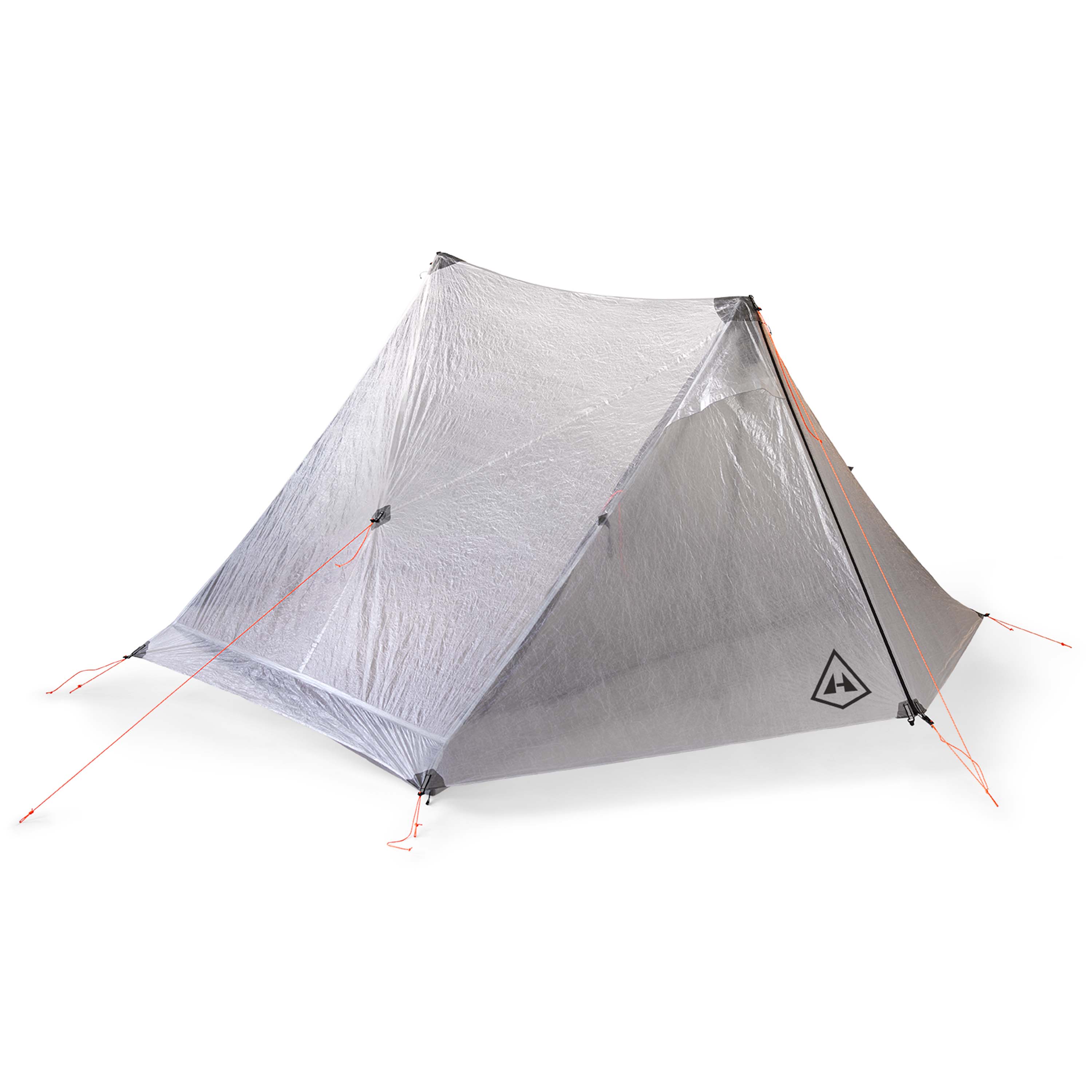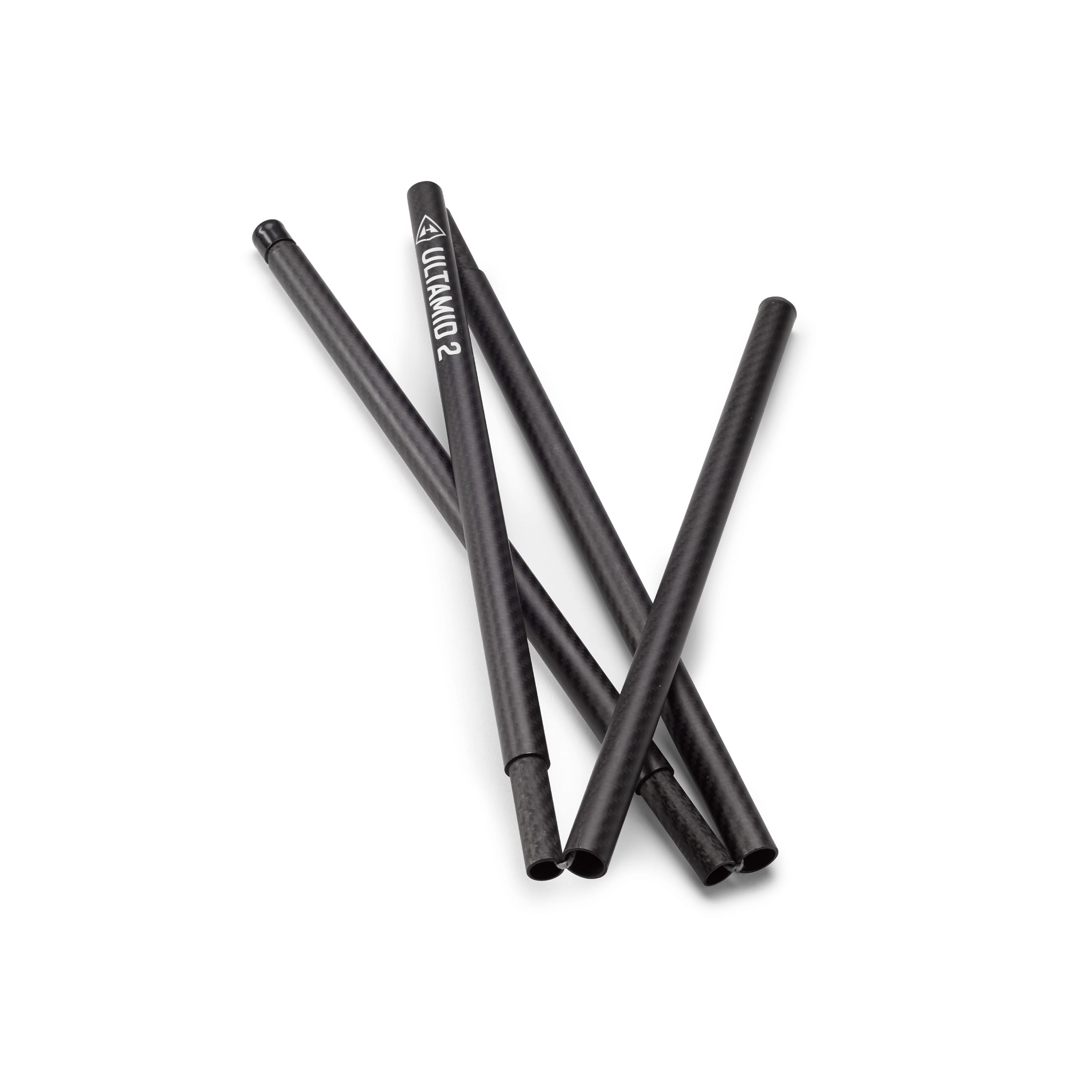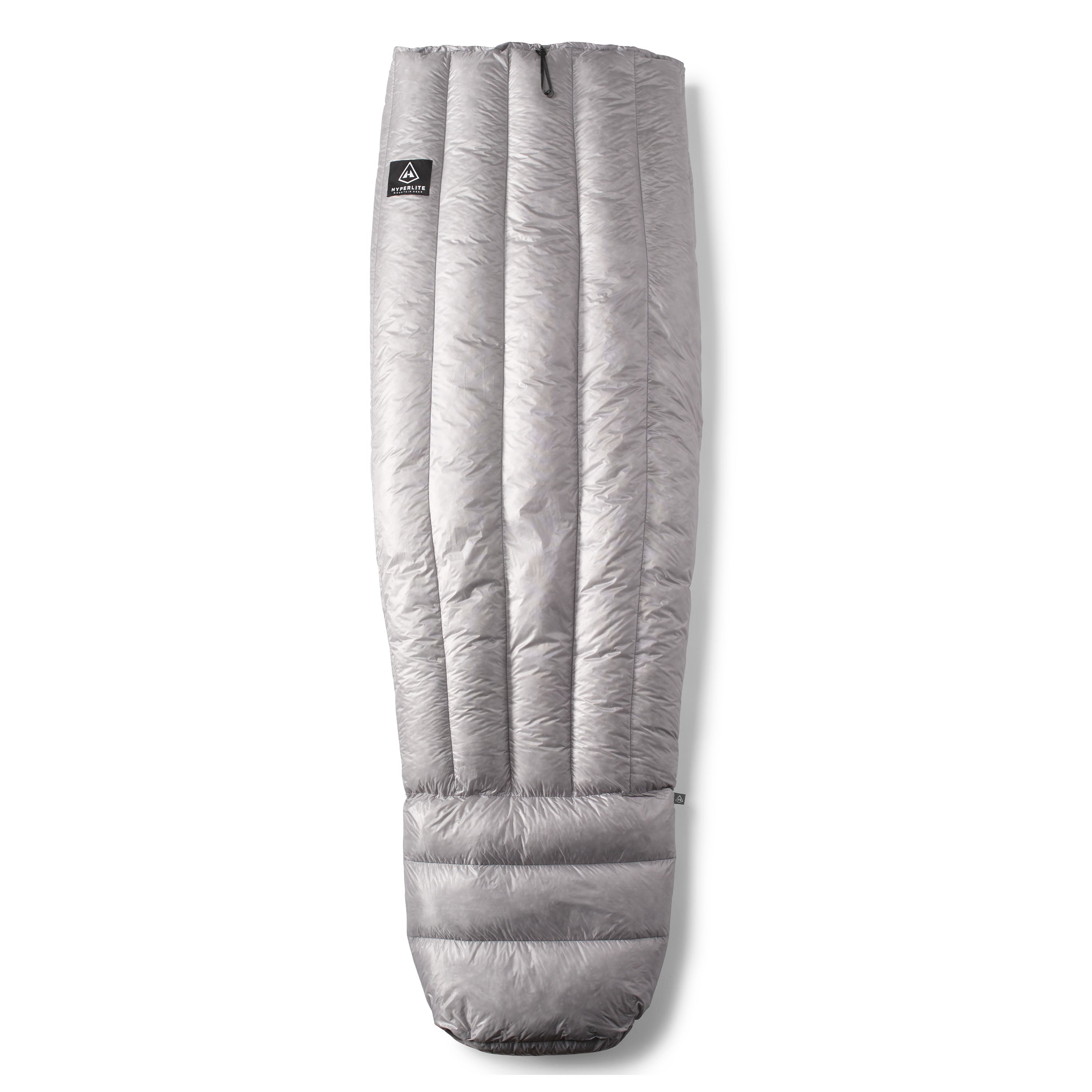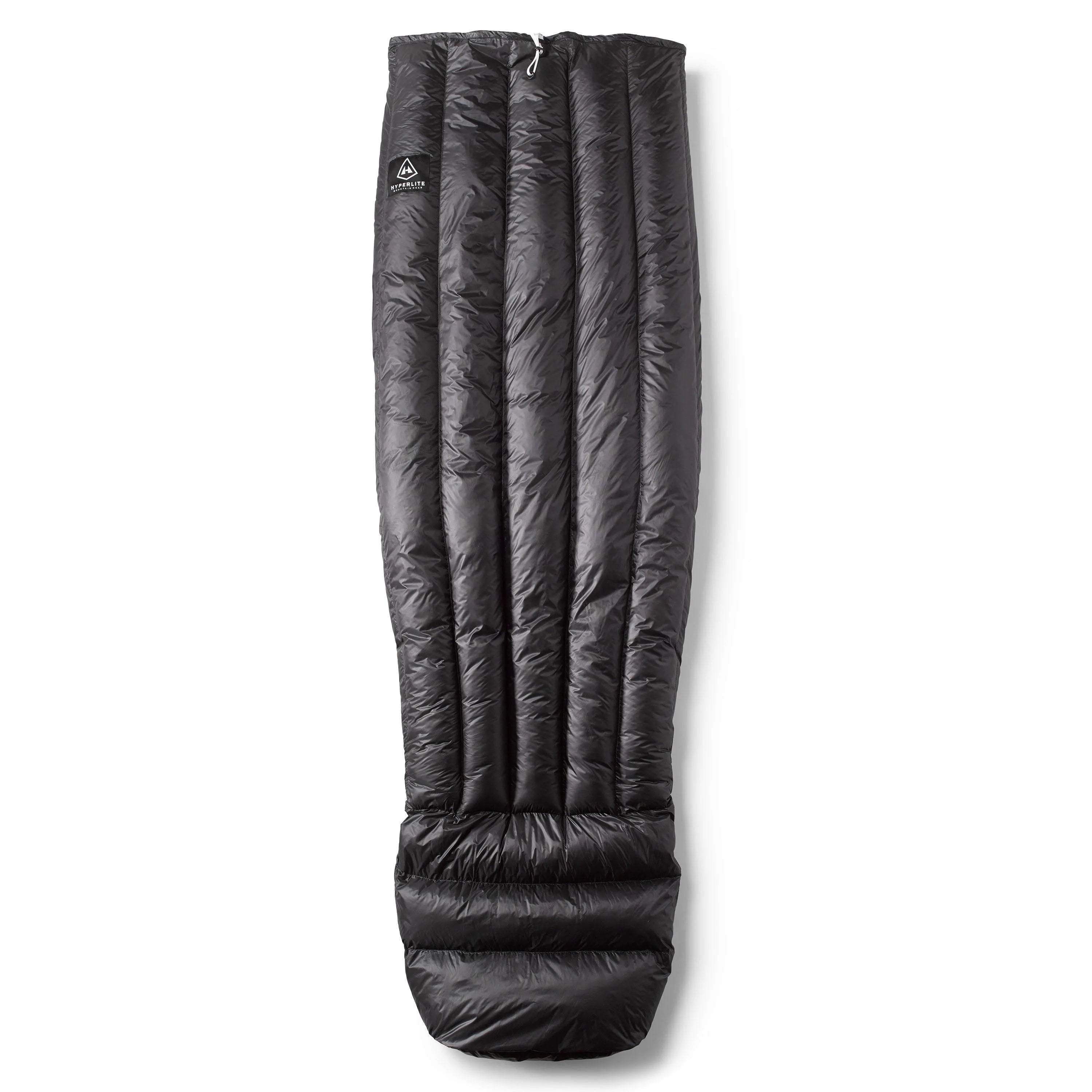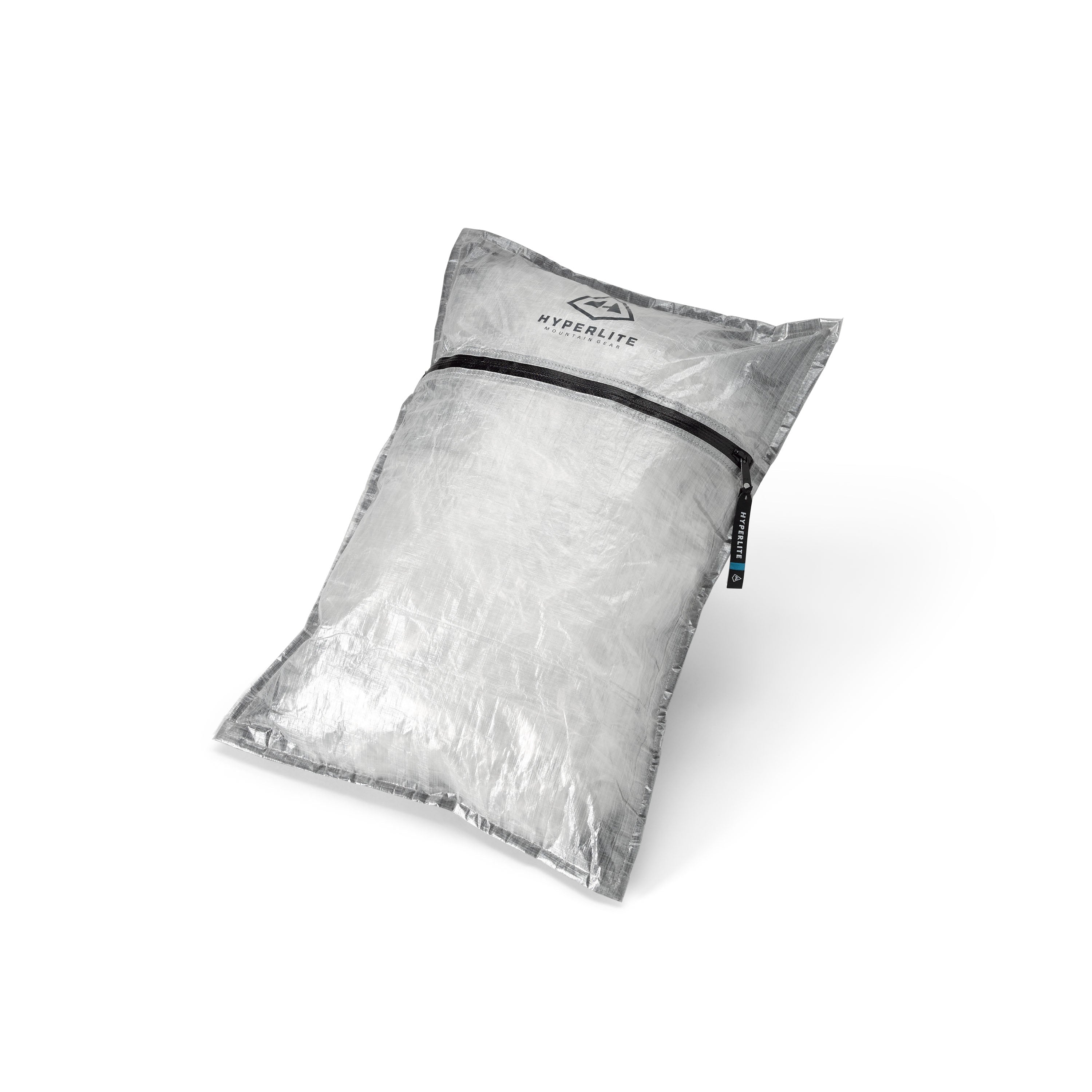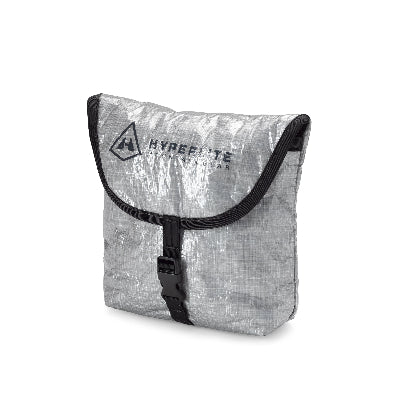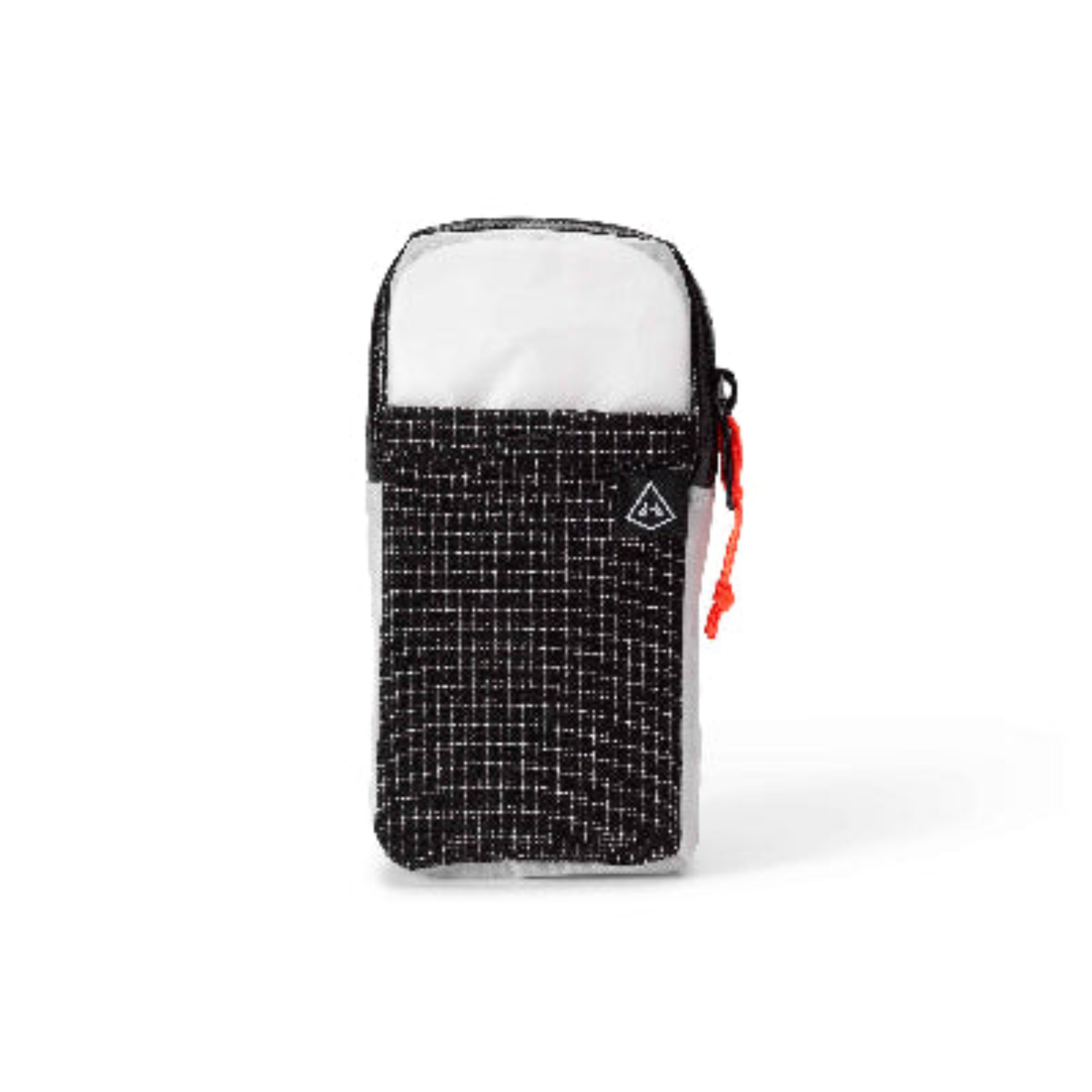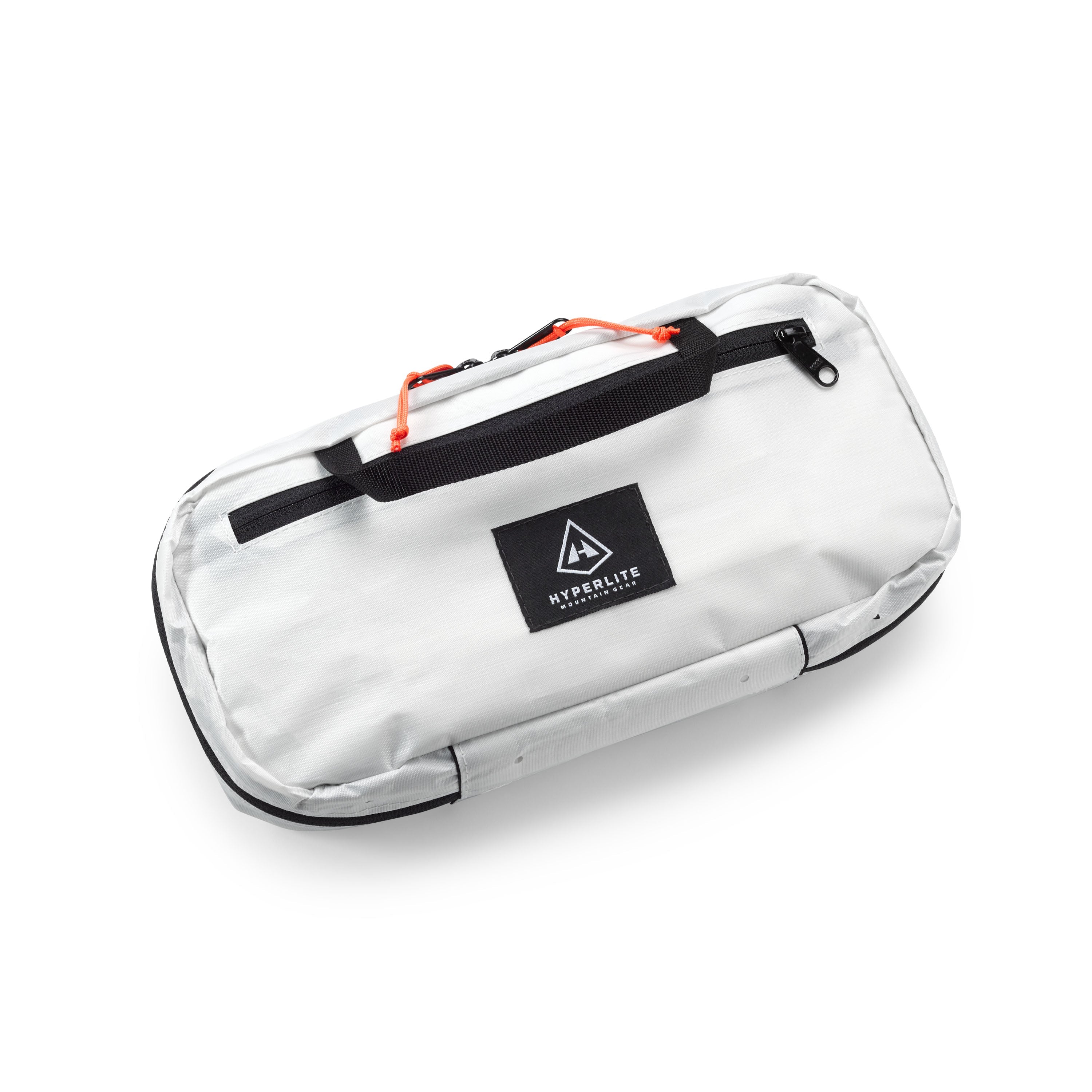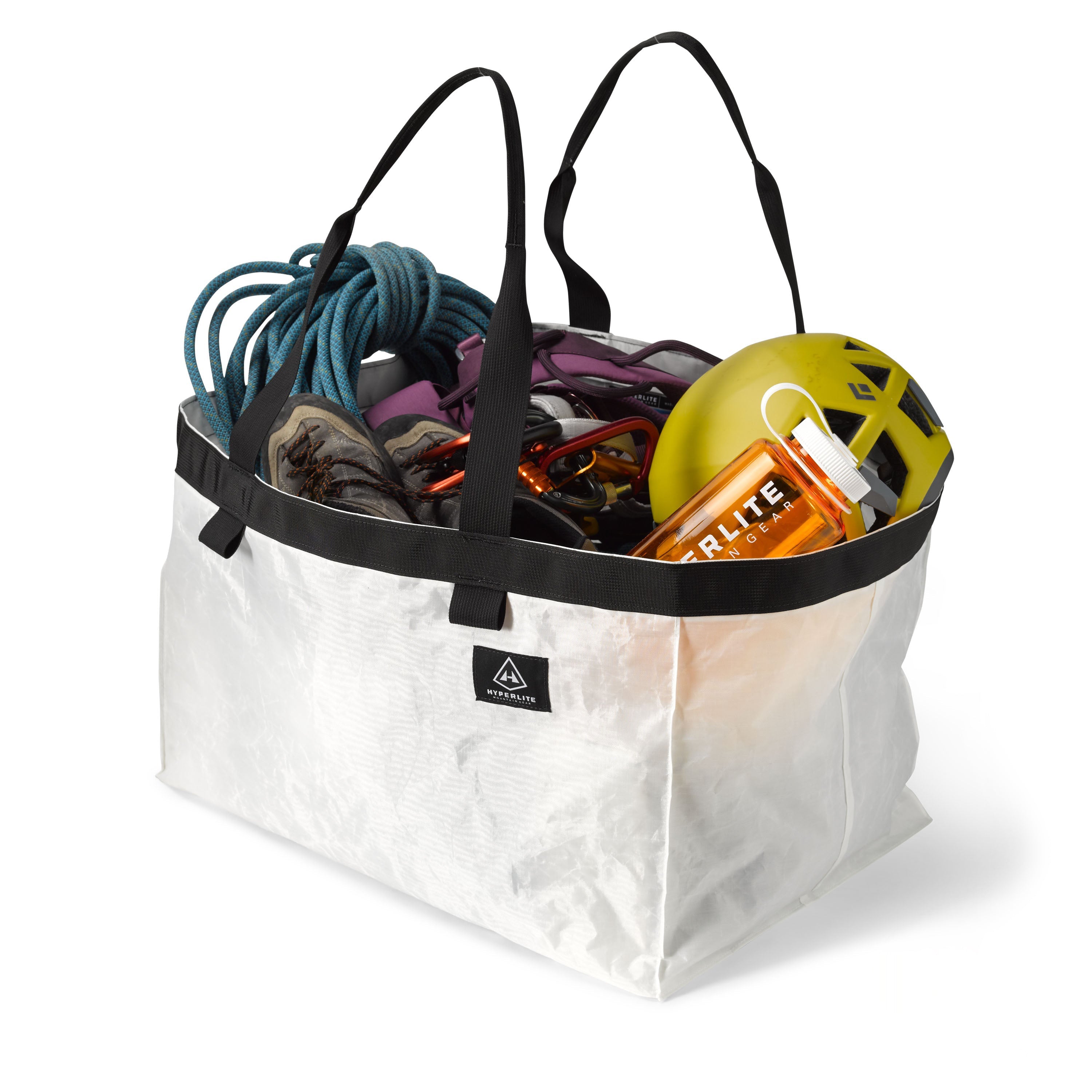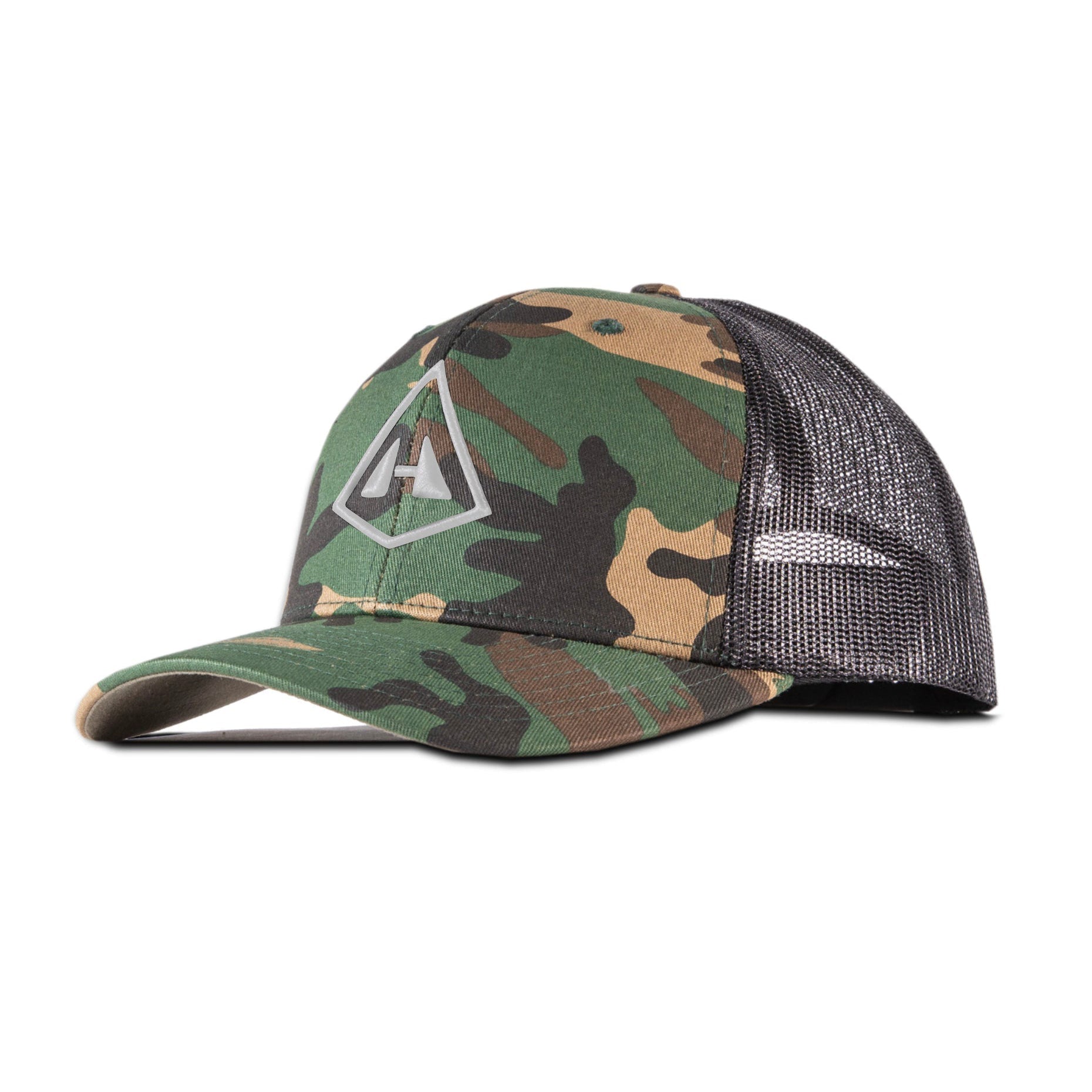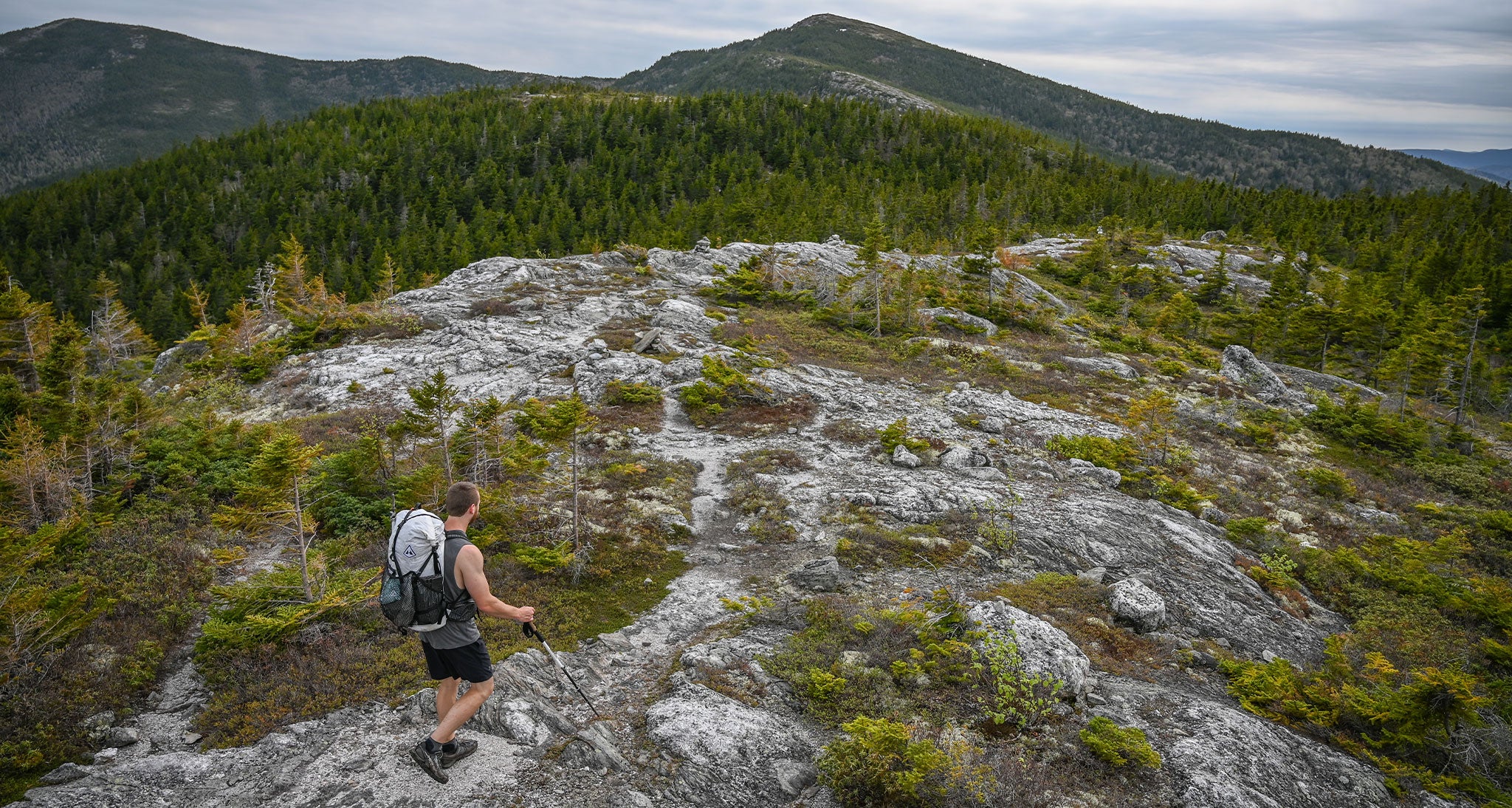How long have you been going light?
Five years
What’s the base weight of your pack before adding consumables like food and fuel?
12 pounds, 8 ounces
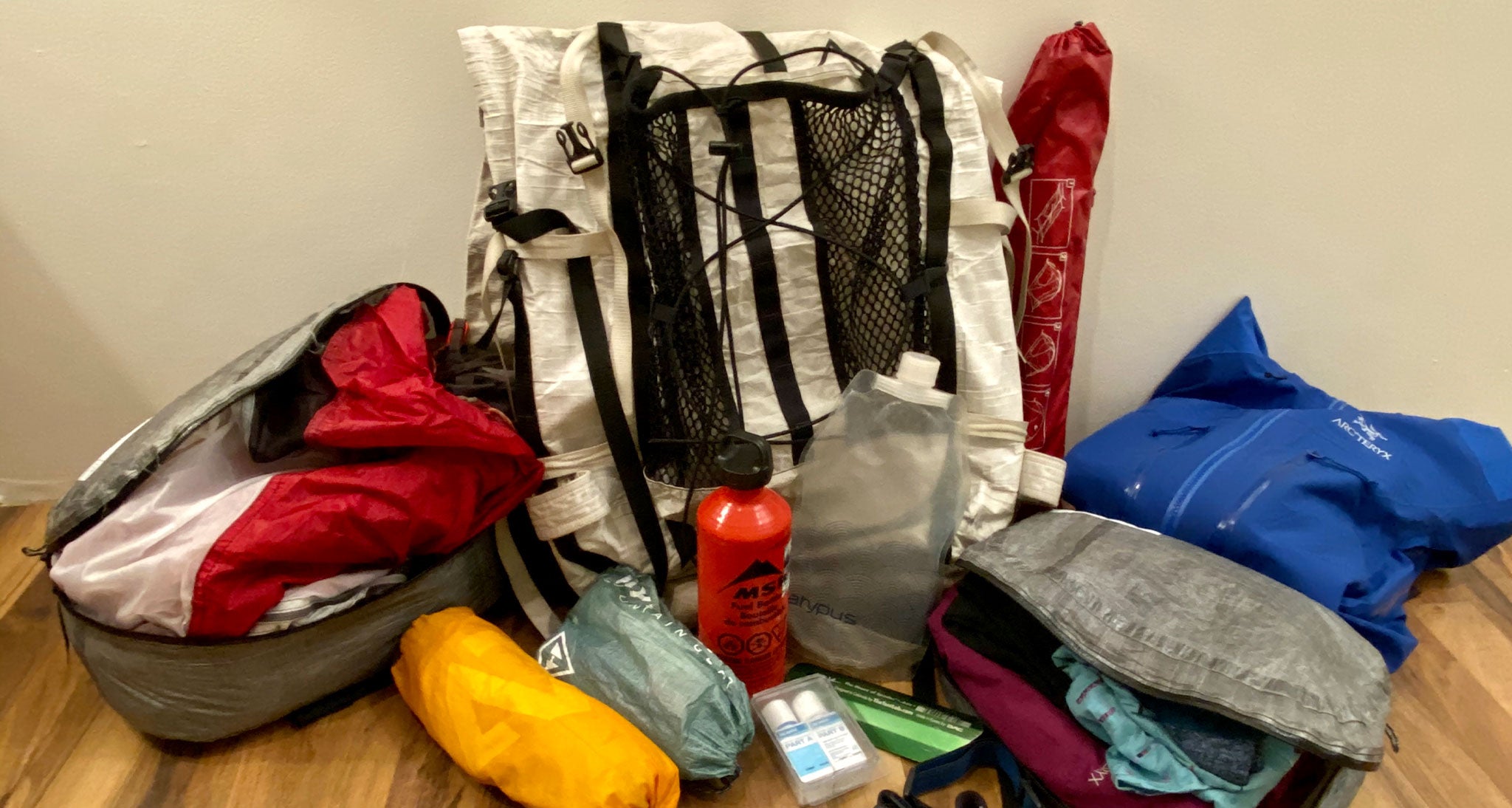
Beyond the “The Ten” items, what other kinds of gear do you make room for, and why?
I spend most of my outside time in the backcountry of Alaska, where we usually hike off-trail through rough elements, including across glacial rivers and over steep scree and talus slopes. I pretty much always bring (and use) my rain gear. Rescue can be days away, so I make room for a paper map and compass as well as electronic navigation on an inReach and/or my smartphone. There are no trail markers to follow, batteries die, and sometimes we really do have to navigate through fog and storms with a compass bearing. We also have grizzly bears and an almost complete lack of reliable trees for hanging food, so I usually bring with a bear-resistant food container, which is required for overnight travel in some Alaska National Parks and recommended across the state. I’ll also carry bear spray even though I’ve never had to use it. To me, these safety items are non-negotiable in the Alaskan backcountry.
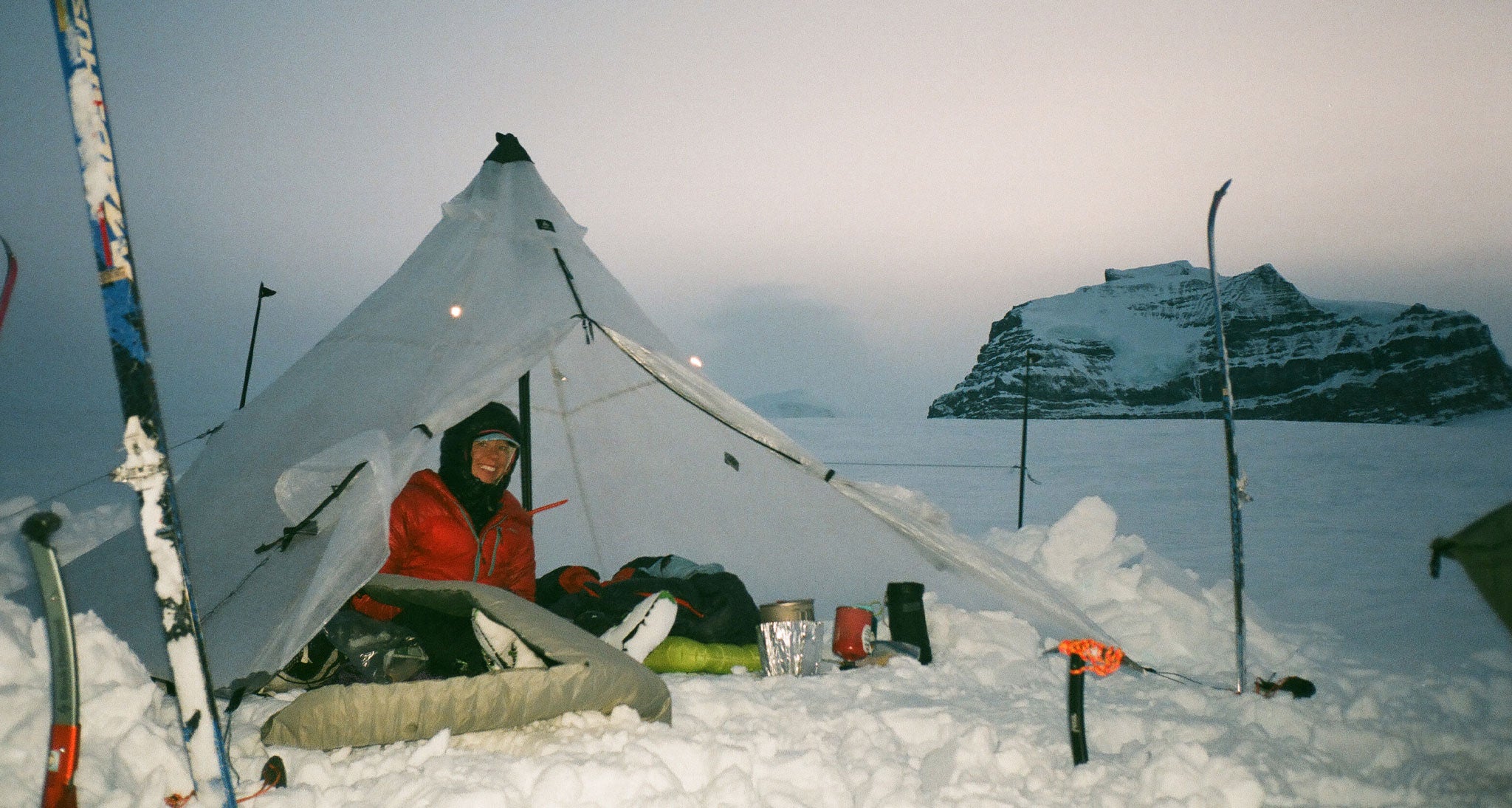
Are you currently forgoing any of the ten pieces? Why?
In the Summers, when we have over 20 hours of daylight each day, I can leave my headlamp behind. I will also often be selective with my water sources and forego water treatment- another perk of recreating in trail-less terrain where there are fewer people, and the landscape naturally encourages dispersed camping and travel.
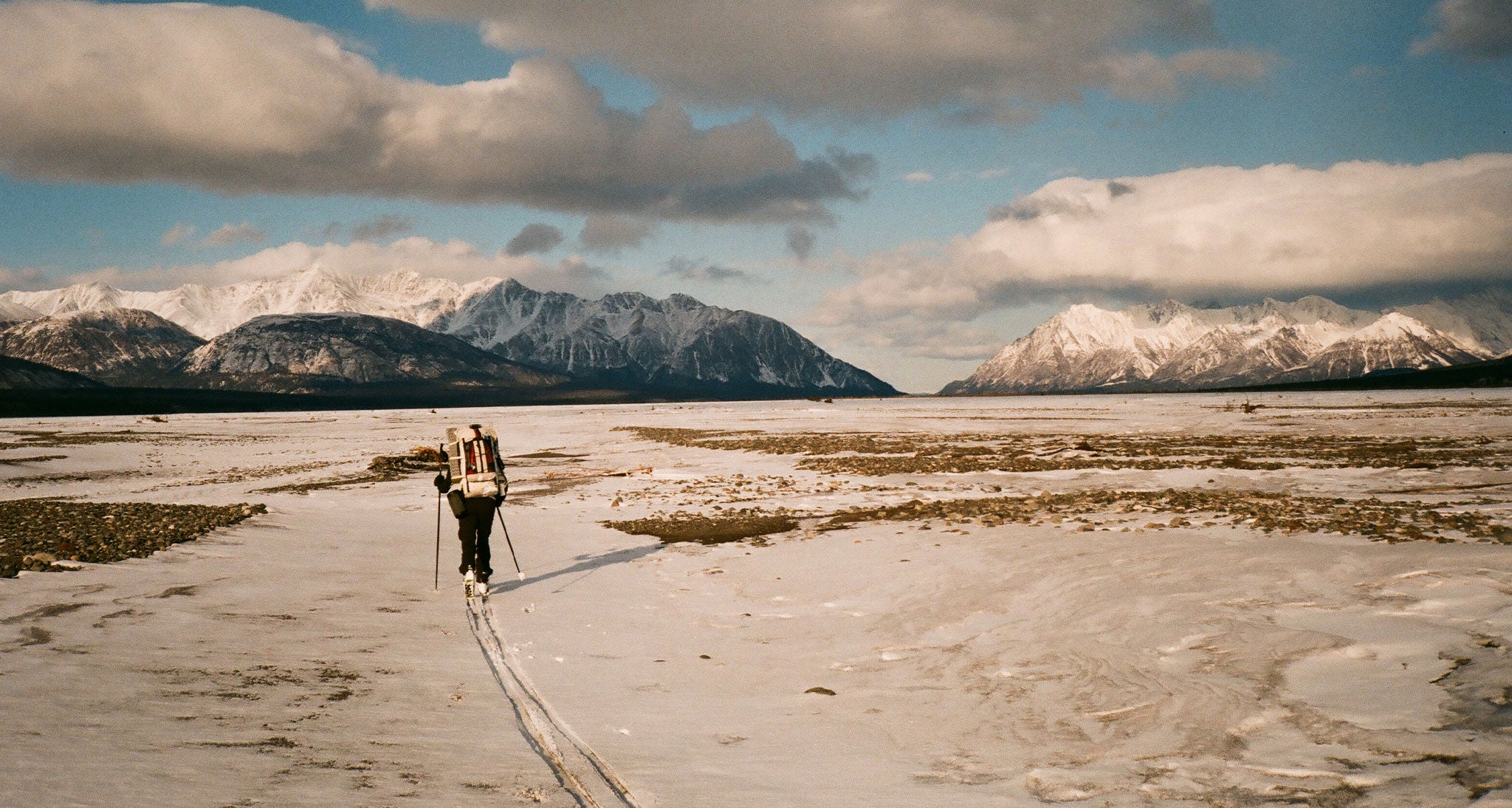
What has achieving this low base weight done for your trips outdoors? How has it impacted the way you travel?
A low base weight has not only allowed me to hike farther in a day or over the course of a whole trip, but I believe it has also increased my longevity long-term and therefore the total miles I’ll be able to hike in a lifetime! I have scoliosis (a crooked spine) and a family history of bad knees, so by lightening my pack now, I aim to protect my body and be able to continue to walk long distances as I age.
Because Alaska is really rough on gear, going lightweight does mean I have to be deliberate about how I move through the terrain. I need to be gentler on my gear when I’m out there, and more proactive with maintenance and repair when I return (for example, cleaning the tent zippers after camping in strong winds on a glacial river bar).
